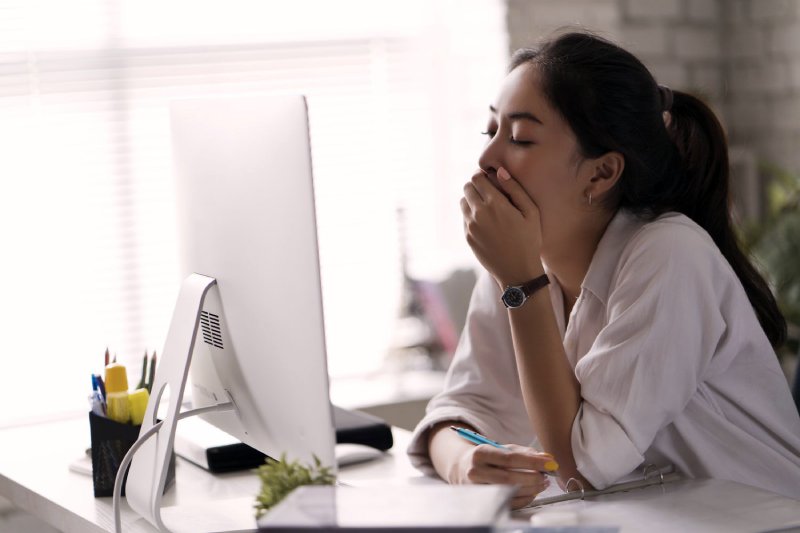The desire to doze off after a meal is a common situation experienced by many people.
This phenomenon occurs especially following lunch or dinner and is often referred to as “sleepiness.” There are several reasons for this situation.
Although the desire to doze off after a meal is generally a normal physiological response, if other factors perpetuate this condition or negatively affect daily activities, it may be useful to consult a healthcare professional.
If you constantly experience the feeling of sleepiness after meals, it would be beneficial to identify the reasons for this situation as soon as possible before it negatively affects your quality of life.
We have researched the most common factors that cause post-meal drowsiness for you…

The Most Common Causes of Post-Meal Sleepiness
- Carbohydrate and Sugar Consumption: Meals, especially those containing highly processed carbohydrates and sugar, can cause blood sugar to rise and fall quickly. This causes fluctuations in insulin levels and can result in feelings of low energy, which can lead to the urge to doze off.
- Tryptophan and Melatonin: An amino acid called tryptophan, found in some foods, can trigger the production of hormones such as melatonin and serotonin in the body. These hormones are associated with relaxation and sleepiness. Consuming tryptophan-rich foods at meals may increase the desire to doze off after meals.
- Digestive Process: After eating, the body focuses on the digestive process and directs blood flow to the digestive system. During this process, blood flow to other organs may decrease and energy levels may decrease, causing feelings of sleepiness.
- Micronutrient Deficiency: In some cases, micronutrient deficiencies, especially iron or vitamin B12 deficiency, can lead to feelings of fatigue and sleepiness.
- Meal Size : Eating excessive amounts of food or consuming a heavy meal may cause the digestive system to need more energy and therefore increase the desire to sleep.
- Psychological Factors: Eating in a comfortable environment and resting after meals can activate the parasympathetic nervous system and cause sleepiness.

How to Prevent Sleeping After Meal?
You can apply the following strategies to reduce the tendency to sleep after meals and maintain energy levels:
- Balanced Diet: A balanced diet can help keep blood sugar at a stable level. A meal containing high-fiber foods, healthy fats, protein and complex carbohydrates can keep energy levels steady by preventing blood sugar spikes and drops.
- Smaller Meals: Large and heavy meals can overload the digestive system and increase the tendency to sleep. Eating smaller, more frequent meals can keep the digestive system working more effectively and help keep blood sugar more balanced.
- Hydration: Drinking enough water supports body functions and maintains energy levels. Drinking water, especially with meals, can speed up the digestive process.
- Light Exercise: A light walk or other light exercise after a meal can speed digestion and increase energy levels. However, it is better to avoid intense exercise immediately after a meal, as this can negatively affect the digestive process.
- Caffeine Intake: A mild dose of caffeine may reduce the tendency to doze off after meals. However, avoiding caffeine intake late at night can cause insomnia, so caution should be exercised.
- Choosing the Right Food : Some foods, especially fish containing omega-3 fatty acids, fruits and green leafy vegetables rich in antioxidants, can increase energy levels. Adding these foods to your meals may reduce post-meal sleepiness.
- A Short Rest Break: If necessary, taking a short rest break after a meal can also increase energy levels. However, this break should not be long and should not disrupt other activities during the day.
Every individual is different, so you can experiment to find appropriate strategies. However, if postprandial sleepiness becomes a persistent problem or is severe, it may be helpful to talk to a healthcare professional.




